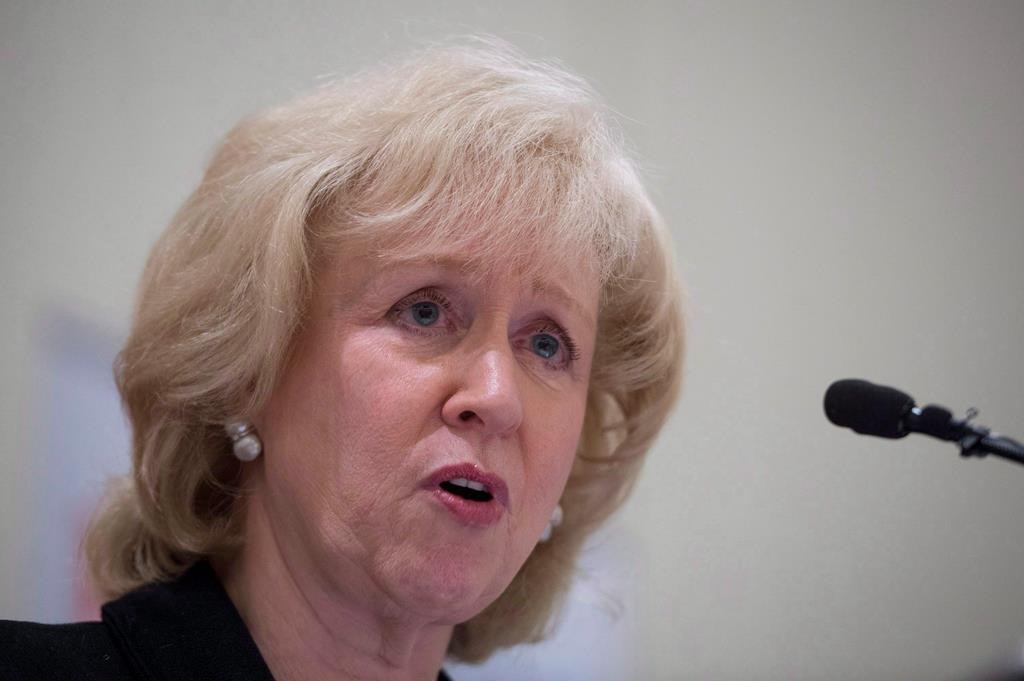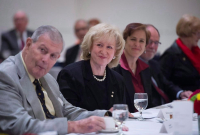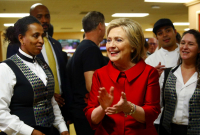Support strong Canadian climate journalism for 2025
Canada’s only female prime minister says a victory by Hillary Clinton in today’s U.S. election would send a signal around the world that women really are ready to lead.
Kim Campbell, who lasted just over four months as prime minister in 1993, predicts a Clinton win would change perceptions about the capacity of women to do the job. She says it would also encourage a lot of young girls to aim for the sky.
Ontario Premier Kathleen Wynne says a Clinton victory would break a "huge glass ceiling" and have implications for young women all over the world. Wynne says she hears from young women and their parents about how important it is for them that a woman is in the role of premier of Ontario, a feeling she predicts would be magnified if a woman was in the White House.
Mobina Jaffer, the first Muslim to be named to Canada’s Senate, says she found a similar effect when she was appointed to the upper house in 2001. She says her appointment inspired a young Afghan girl to think she could be come prime minister one day.
That response taught Jaffer that people can see what’s possible when they see someone like themselves in a job.
New Democrat MP Sheila Malcolmson says Clinton’s success would be especially critical for women given what she calls the misogynist attitudes of her Republican rival, Donald Trump.
Trump has been accused of sexual assault by multiple women and was caught on tape boasting about groping women without their consent. He has also made demeaning comments about the physical appearance of some women.
However, Georganne Burke, a dual Canada−U.S. citizen and former Conservative staffer, says it’s insulting to expect a woman to vote for Clinton just because she’s female. Burke has cast a mail−in ballot for Trump because she shares his beliefs and likes his plan for the United States.
Based on how Trump interacts with the women in his own family, Burke says she does not believe he deserves his reputation.
Speaking at an Ottawa elementary school today, Wynne said there is an important need to identify and talk about misogyny, racism and sexism with young people to make sure the subjects aren’t taboo, "so that young people learn how to recognize those behaviours, those behaviours in themselves and those behaviours in the people around them.
"Even though sometimes it feels like we go one step forward and two steps back, my hope is always that we are moving forward ... in a way that takes us to a more inclusive, more accepting society," Wynne says.





Comments